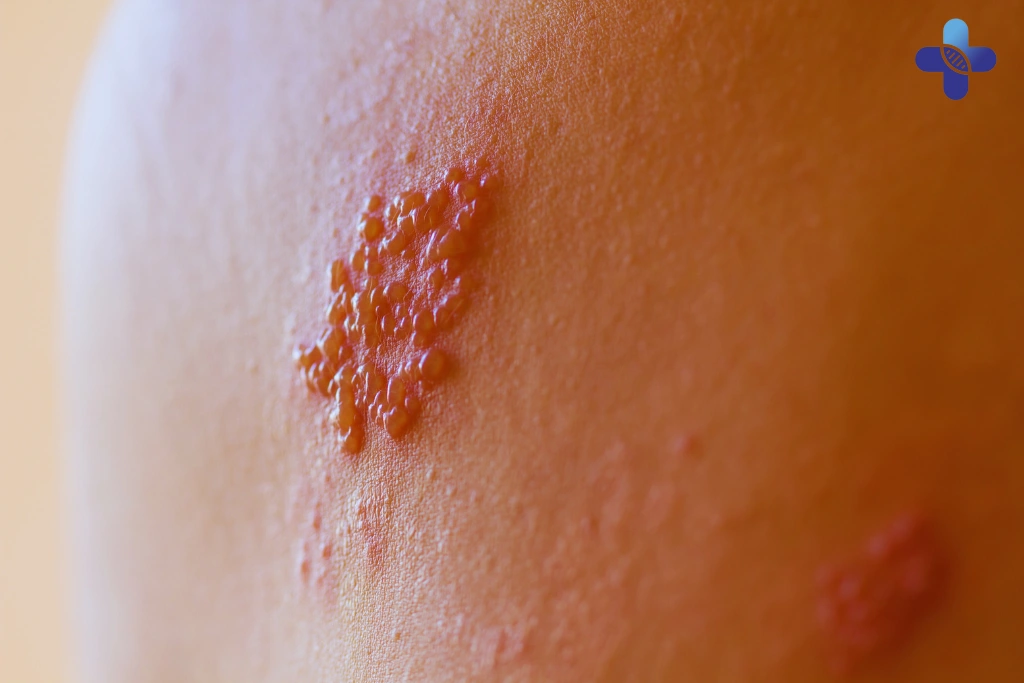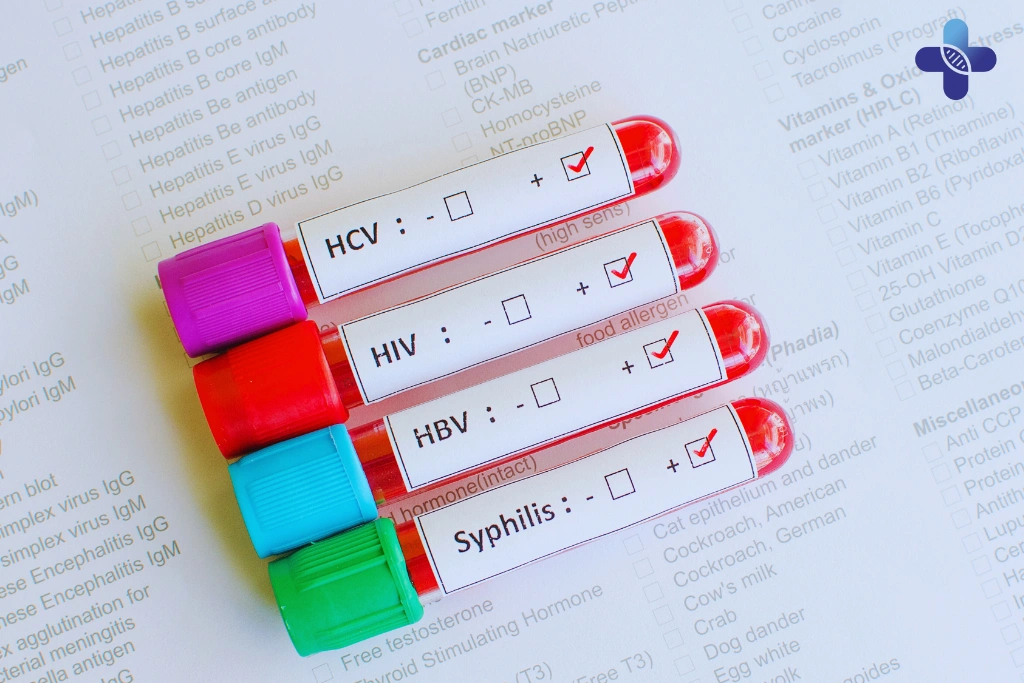When it comes to sexual health, early detection can make all the difference—especially in a destination like Bali, where romance and adventure often go hand in hand. Many people infected with a sexually transmitted infection (STI) experience little to no symptoms at first, allowing the condition to progress silently. If left undiagnosed, an STI in Bali can not only affect your health but also risk the wellbeing of your partner.
In this article, we’ll uncover the early signs of STI you shouldn’t ignore in Bali, why they’re often overlooked, and how prompt testing can help you stay healthy and confident during your time on the island.

Should You Be Worried? Early Signs of STI Most People Ignore
In Bali, everything feels light—the breeze, the vibe, the connections. Between sunset cocktails and spontaneous encounters, it’s easy to feel untouchable. But when it comes to your sexual health, many serious conditions begin quietly. You might notice a little itching, feel more tired than usual, or detect a slight change in discharge. These small shifts are easy to blame on heat, travel fatigue, or even your diet—but they could be the early signs of an STI. And the truth is, many people carry an infection for weeks without realizing it.
At Life Everyouth Bali, we often meet travelers and expats who come in “just to be safe,” only to find out they’ve been living with a silent STI. It’s not about panic—it’s about awareness. Recognizing the early symptoms and getting tested early can prevent long-term health issues and protect your partner too. This article breaks down the most overlooked symptoms, when to take them seriously, and how to access confidential, professional support right here in Bali.
Understanding the Nature of Silent STIs
Not all sexually transmitted infections come with loud warnings. In fact, many STIs begin as “silent infections,” meaning they show no noticeable symptoms in the early stages. You might feel completely healthy while an infection is slowly progressing beneath the surface. This silence is what makes them so dangerous—by the time discomfort appears, the infection may have already caused internal damage or been passed to a partner.
Chlamydia and gonorrhea are two of the most common examples of STIs that often go undetected for weeks or even months. HIV can also remain asymptomatic in its initial phase, giving people a false sense of security. Without regular screening—especially after unprotected sex or with a new partner—many individuals delay treatment and increase the risk of complications or transmission.
At Life Everyouth Bali, we emphasize the importance of early detection. Regular STI testing in Bali is not just for those with symptoms—it’s for anyone who wants to take control of their health. Whether you’re traveling, exploring new relationships, or simply unsure about a past encounter, silent infections don’t wait. Acting early can protect your future.
Most Common Early Symptoms to Watch For
Mild Genital Itching or Irritation
One of the earliest and most overlooked symptoms of an STI is a light itching or tingling sensation around the genital area. Many people assume it’s due to sweat, shaving, or Bali’s tropical heat—but persistent discomfort, especially without an obvious cause, should not be ignored. It could be the first indication that your body is reacting to an infection like herpes, chlamydia, or trichomoniasis.
Unusual Discharge with Changes in Smell or Color
Another red flag is any discharge that looks or smells different than usual. This includes increased volume, a greenish or yellow tint, or a strong or unpleasant odor. While discharge is a normal function of the body, changes often signal infection—particularly in conditions like gonorrhea or bacterial vaginosis. Both men and women should take this symptom seriously and consider STD testing in Bali if it occurs.
Pain or Burning Sensation During Urination
Feeling pain, heat, or a sharp sting while urinating is a classic but frequently underestimated symptom of an STI. It’s often mistaken for a urinary tract infection (UTI), especially among women. However, infections like chlamydia and gonorrhea can irritate the urethra, causing similar sensations. If you experience this discomfort after a recent sexual encounter, don’t self-diagnose—get tested at Life Everyouth Bali for clarity and care.

Symptoms That Are Often Misattributed
Skin Rashes, Redness, or Tiny Sores
Many people dismiss minor rashes or redness near the genitals or mouth as shaving irritation, allergic reactions, or even bug bites—especially in a tropical environment like Bali. However, these small signs could be the early presentation of herpes, syphilis, or other sexually transmitted infections. Tiny, painless sores can go unnoticed or be mistaken for acne, but they may signal an active infection that’s easily transmittable to others.
Fatigue or Low-Grade Fever That Feels Like Jet Lag
Feeling unusually tired or slightly feverish after a trip is often chalked up to travel exhaustion. But persistent fatigue, especially when it lingers for more than a few days, may be a systemic response to an underlying infection. STIs like HIV, hepatitis B, and syphilis can cause mild flu-like symptoms in the early stages—making it easy to overlook what your body is actually trying to tell you.
Pelvic Pain Mistaken for a UTI or Menstrual Cramp
Pelvic discomfort or pressure is commonly blamed on urinary tract infections, period pain, or digestive issues. But for sexually active individuals, it could also indicate early signs of chlamydia or gonorrhea. These infections often inflame the reproductive tract, leading to cramping or pain during urination or sex. At Life Everyouth Bali, we frequently meet patients who wait weeks thinking it’s just a UTI—only to find out it’s an STI that needed earlier attention.
Who is Most at Risk?
Those in New or Casual Relationships
Starting a new relationship can be exciting—but it also comes with health risks, especially when partners haven’t yet discussed their sexual history or testing status. People who have multiple partners, or those involved in casual hookups during a holiday or stay in Bali, are more likely to encounter undiagnosed STIs. Many infections spread before symptoms ever appear, making routine screening essential even when things “feel fine.”
Unprotected Sex While Traveling
It’s easy to let your guard down while traveling—especially in a vibrant destination like Bali. The atmosphere invites freedom and spontaneity, which often leads to unprotected sex with new partners. Unfortunately, condoms are not always used consistently, and some STIs can spread through skin-to-skin contact alone. If you’ve had any unprotected encounters, STI testing in Bali is a smart and proactive health decision.
Visitors, Digital Nomads, and Expats in Bali
Bali’s large international community, from long-term travelers to digital nomads and expats, often engage in active social lives and dynamic relationships. But without access to their home country’s healthcare systems, many delay testing or ignore symptoms. At Life Everyouth Bali, we encourage all foreigners living or visiting here to treat sexual health as a priority—regardless of whether symptoms are present or not.

When Should You Get Tested?
Timing matters when it comes to sexually transmitted infections. Many people delay testing until symptoms become uncomfortable—but by then, the infection may have already progressed or been transmitted to others. If you experience unusual discharge, itching, or a burning sensation when urinating, it’s best to get tested immediately, even if the symptoms seem minor or short-lived. Early testing allows for easier treatment and minimizes long-term health risks.
If you’re sexually active—especially with new or multiple partners—routine screening every 3 to 6 months is highly recommended. This is particularly true if you’ve had unprotected sex, experienced condom failure, or are unsure of your partner’s health status. Even without symptoms, STI testing in Bali is a responsible step to protect yourself and others, and it helps you stay in control of your well-being while enjoying the island lifestyle.At Life Everyouth Bali, we understand that testing can feel intimidating, especially in a foreign country. That’s why we provide fast, confidential, and judgment-free services designed with international clients in mind. Our STD testing packages start from IDR 800,000, with both basic and comprehensive panels available depending on your needs. Whether you’re a tourist here for a few days or an expat living long-term, our friendly team is here to help you get answers—so you can move forward with clarity and confidence. Walk-ins and online bookings are welcome.

Conclusion Early Signs of STI You Shouldn’t Ignore in Bali
Silent symptoms don’t mean harmless conditions. In Bali, where the atmosphere encourages freedom and spontaneity, it’s easy to ignore minor signs like fatigue, discharge, or genital irritation—especially when you’re focused on enjoying the moment. But sexually transmitted infections often begin quietly and progress without warning. By the time symptoms become more noticeable, complications may have already developed. That’s why paying attention to the early signs and acting quickly can make a real difference—not just for your health, but for the safety of your partners too.
At Life Everyouth Bali, we’re committed to providing discreet, professional care that’s tailored to travelers, expats, and anyone who wants peace of mind. Whether you’re concerned about a recent encounter or simply staying proactive, getting tested is a responsible, empowering step. Don’t wait until it feels urgent. The earlier you test, the sooner you can take control.
Frequently Asked Question Early Signs of STI You Shouldn’t Ignore in Bali
What are the earliest signs of an STI?
The earliest signs of a sexually transmitted infection can include mild itching, slight irritation in the genital area, unusual discharge, or a burning sensation when urinating. These symptoms are often dismissed as minor or caused by non-sexual issues like dehydration or shaving. However, they can be early indicators of infections such as chlamydia, gonorrhea, or trichomoniasis. Recognizing and responding to them early is essential to avoid complications and prevent further transmission.
Can you have an STI with no symptoms?
Yes, many people carry STIs without showing any symptoms—this is why they’re often called “silent infections.” You might feel completely healthy while unknowingly passing the infection to your partner. Asymptomatic cases are common in conditions like chlamydia, HPV, and HIV in early stages. Routine testing is the only reliable way to detect these infections before they cause damage.
How long after exposure do STI symptoms show?
The timeline for symptoms to appear varies depending on the infection. Some, like gonorrhea or herpes, may show signs within a few days, while others—such as syphilis or HIV—may take weeks or longer. Some people never develop noticeable symptoms at all. If you’ve had a risky encounter, getting tested within 1–2 weeks is a smart first step, with a follow-up test recommended after 4–6 weeks.
Are early STI symptoms painful?
Not necessarily. In fact, many early symptoms are mild, subtle, or completely painless. This includes slight itching, spotting, or discomfort that’s easy to overlook or blame on other causes. That’s what makes early STIs so dangerous—they progress quietly if left untreated.
What if I only have unusual discharge?
Even if unusual discharge is your only symptom, it could indicate an active infection. Changes in color, smell, or volume are often linked to bacterial STIs like gonorrhea or trichomoniasis. It’s important not to wait for more symptoms to develop, as early testing can lead to faster and easier treatment. Discharge should never be ignored—especially after unprotected sex or a new partner.
Can early signs go away on their own?
Some early symptoms may fade or disappear temporarily, but the infection itself often remains active. This can give a false sense of recovery while the bacteria or virus continues to spread internally or to others. Without proper treatment, STIs can lead to serious complications, including infertility or chronic pain. Always address the root cause through professional testing and care.
Are these symptoms the same for men and women?
While there are similarities, the presentation of STI symptoms can differ between men and women. For instance, discharge and pelvic pain may be more noticeable in women, while men may detect symptoms earlier through urination discomfort. Some infections also affect male and female reproductive systems differently. Seeing a doctor ensures accurate diagnosis regardless of gender.
Should I tell my partner if I have symptoms?
Absolutely. Being honest about symptoms or a positive diagnosis is an act of care and responsibility. It allows both of you to seek testing and treatment, and helps prevent reinfection or further spread. Early, respectful communication can strengthen trust and protect your relationship in the long run.
Where can I get tested discreetly in Bali?
You can visit Life Everyouth Bali for fast, private, and judgment-free STI testing. We serve both tourists and expats, with English-speaking staff and medical professionals who understand international health standards. Appointments are easy to book online, but walk-ins are also welcome. Your health and privacy are always respected.
How much does STI testing cost in Bali?
Testing prices vary depending on the type of infection and the number of tests needed. At Life Everyouth Bali, we offer several STI test packages, ranging from basic screenings to full panels. Prices typically start around IDR 800,000 and include doctor consultation. Our staff will help you choose the right option based on your needs and risk level.
